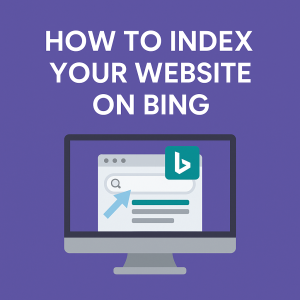If you want your website to grow and reach the people it’s meant for, you can’t ignore SEO. SEO is no longer optional it’s a necessity. But getting everything right keywords, readability, structure, and optimization can be overwhelming. That’s where content writing tools for SEO come in. These tools help you create content that not only connects with readers but also ranks higher in search engines. Whether you’re a solo blogger, a digital marketer, or managing a brand, using the right tools can change the game for you.
What is SEO Content Writing?
SEO content writing is all about crafting articles, blog posts, product descriptions, and landing pages that appeal to readers while following search engine guidelines. The goal is simple: write something useful and relevant, and make it easy for Google to understand and recommend it.
When you write with SEO in mind, you’re not stuffing keywords unnaturally or adding unnecessary fluff. You’re offering real solutions, answering real questions, and structuring your work so it’s easy to read both for humans and algorithms. Every paragraph, heading, and keyword placement is intentional.
Key Elements of SEO Content
To make your content rank higher, a few essentials things must come together:
- Keyword Placement: Smart, natural use of keywords in titles, headings, meta descriptions, and throughout the body.
- Readability: Short sentences, clear structure, and simple language help keep readers engaged.
- Internal Linking: Connecting different articles on your site builds authority and keeps visitors around longer.
- Meta Details: Meta titles and meta descriptions can dramatically improve click-through rates.
- Content-Length and Format: Well-structured long-form content tends to perform better, especially when it fully answers user intent.
Every piece of writing that includes these elements stands a much better chance of ranking higher on Google and satisfying your audience’s needs.
Categories of Content Writing Tools for SEO
Keyword Research Tools
Before you type your first sentence, you need a plan. Good keyword research shows you exactly what your audience is looking for. Without it, you might create beautiful content that nobody ever reads. Using content writing tools like keyword research platforms helps you align your topics with real-world demand.
Top Tools
- Semrush Keyword Magic Tool: A powerhouse for finding keywords across different topics and clusters.
- Ahrefs Keywords Explorer: Excellent for detailed data on keyword volume and competition.
- Ubersuggest: Great for quick, budget-friendly keyword ideas.
With these tools, you can confidently create articles that have a real shot at ranking.
Content Optimization Tools
Once you have your draft, optimization tools help you polish it. They suggest secondary keywords, improve your article structure, and ensure you’re hitting all important SEO checklist.
Top Tools
- Surfer SEO: Guides you based on what’s already ranking for your target keyword.
- Clearscope: Analyzes top content and suggests the right terms and structure.
- Frase: Helps you write briefs and outlines that match search intent.
If you’re serious about scaling your content strategy, these content writing tools for SEO are essential companions.
Grammar and Readability Checker Tools
Good grammar and readability are not just about sounding professional. They’re about keeping readers engaged and making content easy to process.
A few trusted tools include:
- Grammarly: For checking grammar, spelling, and tone issues.
- Hemingway Editor: For trimming down overly complicated sentences and improving readability scores.
When your content is clear, your visitors stay longer—and that sends positive signals to search engines.
Plagiarism Checker Tools
No matter how good your writing is, unintentional duplication can happen. Running your work through plagiarism checkers ensures your content stays unique, protecting your rankings and reputation.
Some reliable choices:
- Copyscape: One of the longest-standing tools in the field.
- Quetext: A modern, easy-to-use plagiarism checker for quick scans.
Publishing original work not only builds trust but also boosts your SEO strength over time.
AI Writing Assistants Tools
AI is not about replacing writers; it’s about making your writing process faster and smoother. Tools like:
- Jasper AI
- Writesonic
- ContentShake AI
Can help you generate ideas, first drafts, or rewrite sections without losing your authentic voice. Used wisely, they allow you to work faster without sacrificing quality.
Integrating Tools into Your Content Strategy
Building an efficient system with the right set of SEO content tools can save you hours every week and help you produce higher-quality work.
Workflow Optimization
Here’s a smart workflow:
- Find keywords using Semrush or Ubersuggest.
- Outline your article with Frase.
- Write naturally while keeping keywords handy.
- Optimize the draft with Surfer SEO or Clearscope.
- Check grammar and clarity with Grammarly or Hemingway.
- Scan for plagiarism with Copyscape.
- Finalize and publish with smart internal linking and a catchy meta description.
Following a structure like this ensures your content is always high-quality, SEO-friendly, and ready to attract traffic.
Tool Selection Tips
Choose your tools wisely based on:
- Your writing volume
- Your technical expertise
- Your available budget
- Your specific content goals
You don’t need every tool available. Start small, master the basics, and expand as your content demands grow.
Wrapping Up
In today’s competitive digital world, relying on instincts alone isn’t enough. You need smart systems, reliable data, and quality checks at every stage of the content process. That’s why using content writing tools for SEO is absolutely crucial.
From planning to publishing, each tool you use adds a layer of precision to your strategy. Instead of guessing what works, you create optimized, reader-focused content that ranks higher, performs better, and helps grow your brand sustainably.
Frequently Asked Questions
What are the best free content writing tools for SEO?
Top free tools include Ubersuggest, Grammarly Free, Hemingway Editor, Google Keyword Planner, and Quetext. They offer a great starting point without costing a dime.
Can AI writing tools replace human writers?
AI can help speed up your workflow, but it can’t fully replace human creativity, empathy, or storytelling. Use AI as a helper, not a substitute.
How often should I use SEO tools?
Ideally, use them before writing (keyword research), during drafting (optimization guidance), and after writing (grammar and plagiarism checks) to ensure your content is polished and ready to rank.
Are paid tools better than free ones?
In many cases, yes. Paid tools usually offer more features, accurate data, and better support. If you’re serious about SEO, investing in the right paid tool can be a game-changer.








